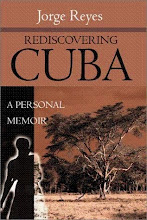The Mischief of Factions
by Jorge Reyes
I actually feel bad for President Obama. Never before has our democratic experiment been confronted by so many well-financed groups calling themselves grassroots movements vying with one another for public attention.
But don't be deceived.
While the clamor for attention in our democratic experiment is not new, what is new is that none of these groups are the spontaneous growth of people rallying around a single cause or theme. Rather, what we're seen is the din of a disaffected few heavily financed by lobbyist (corporate) moneys with huge bank accounts at their disposal and not being shy about spending it. These lobbyists not only provide the blueprint and toolkit to embolden “the mischiefs of faction,” to paraphrase James Madison in the Federalist paper #51, but also to maneuver the ever increasing political angst and discontent of people. Madison feared, not without reason, that these factions if left unfettered would ultimately hijack the entire political parties and issues, eventually fracturing the entire democratic process.
To take as an example the Tea Party, that unconventional group of people mostly protesting against big government and taxes. The issues they are embracing, again, is nothing new nor so outlandish. We've all heard it before from every politician: how they're anti-government and anti-tax.
Fine and dandy.
The problem is this: the Tea Party is financed solely by lobbyists organizations, mainly Americans for Prosperity and Freedom Works and not by the people, for the people, or we the people.
It is Freedom Works that provides the Tea Party with coordination, “take over” ideas in local and national political events, “how-to guides”, Web site information, as well as professional-looking press releases. Americans for Prosperity, the other PAC that finances the Tea Party, also coordinates press releases and events information in certain states. More, Americans for Prosperity is run by Tim Phillips, not coincidentally a former partner of Ralph Reed, also a lobbyist for the firm Century Strategies.
We can't do it that easily because there are too many knots to be untangled. That's the problem. Our own rhetorical flair is preventing a solution; a set of solutions; any solution. Take your pick. More, since there's so much money being poured into these highly-vitriolic staged protests the voices of these revolutionaries won't be silenced anytime soon further aggravating any short-term resolution.
"Do any of these people have foggiest idea what it's like to live under communism, I wonder?"
There's a lot of anger, and understandably so. More and more people are on the brink of losing their jobs and livelihoods. Unemployment remains at a 10% margin, and some say the percentage is actually higher. As we all know, many Americans don't have health care coverage, something that costs every single one of us who has it more in the long-term. There doesn't to be an end to foreclosures, leaving unanswered an important question: what's going to happen to all this new form of middle-class homelessness? What are we going to do about them?
So, yes, there's a lot of anger and there are a lot of social issues we need to face and solve. The problem is that whenever we start chanting to catch-phrases written by lobbyists posing as leaders of legitimate grassroots movements, we all lose.
We need to wake up. The mischief of factions is eroding both democracy and liberty because what it comes down to is money or how much of it you got in order to effectuate any sort of political changes. Short of that, you're out of the picture.
Sometimes the simplest things are the most effective. Take time out of your busy life and write a letter to your representatives in government at all levels. Tell them how you feel. Ask them to respond to your queries not with a pre-packaged set of ideas, but with answers that respect your right as a citizen.
Pardon the redundancy, but I actually feel bad for President Obama. He's got a lot on his plate right now and no matter what he does, I feel that his good intentions are set against a collision course of historical importance not of his own making.














